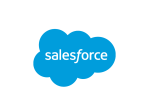Lamborghini and Other Top Companies Share Teamwork Tips



Brands like Siemens, Lamborghini, Hilton, and Hilti are on the cutting edge of employee experience (EX). These are the teamwork tips they use to make their employees feel nurtured and empowered every day.
Teamwork tip #1: Hybrid office teams work flexibly with Siemens’ smart sensors
“Employees want to come back. Maybe not all the time, but they want the flexibility to come back to collaborate,” said Dave Hopping, CEO of Siemens Smart Infrastructure Solutions & Services. “How are they going to have the updated information to know where to go and if it’s safe?”
To help employees stay safe in a shared office, Siemens developed an Internet of Things (IoT) solution that improves occupant well-being and optimizes the use of space and assets within a building. With IoT solutions, smart sensors collect valuable data from the building systems as well as the ways occupants use the space inside. The anonymized data can also trigger automatic business responses, such as when to disinfect a room or in what order to clean the floors. These decisions are no longer left to intuition, tradition, or chance.
Learn how Siemens’ boosts employee responsibility for clean, uncrowded workspaces



Those real-time insights are designed to give executives the peace of mind to allow their employees to choose for themselves when and how they work in the physical office. Siemens announced in July, 2020 that it was transitioning its entire workforce to a permanent flexible work week.
“If you have a clear vision, a flexible workforce, and a strong work-life balance, and you’re being measured on impact – this will improve our culture as we move forward,” Hopping said.
Teamwork tip #2: Lamborghini is turbocharging team transparency
You can spot one instantly: the V12 turbocharged engine and aerodynamic spoiler, all wrapped up in a tight cherry red stainless steel body. The Lamborghini, the world’s sexiest car, leaves little room to be mistaken. But under the hood, what values does the brand really embody? For a while, its employees weren’t so sure either.
Lamborghini has admitted to being shy in the past about communicating the values it stands for. But today, the automaker’s employees are passionate not only about the brand but also about what they do. What accounted for the company’s turnaround?
First, Lamborghini made a deliberate effort to communicate its core values: craftsmanship and dedication to service. The company started production on a LinkedIn video series that interviews various employees – from departments spanning design to vehicle dynamics and engineering – to openly discuss their expertise and commitment to honing their craft. To secure even further employee engagement, the company pairs its brand story with tactical transparency, sharing growth trends, upcoming plans, and new launches with employees.
This article originally appeared in Vantage Point, a Salesforce magazine



Talking about your brand values isn’t just a feel-good diversion: A recent State of Work study by Slack and GlobalWebIndex of 17,000 knowledge workers, managers, and executives found that aligned workers are 3X as likely to feel empowered, adaptable, and like they have a clear understanding of what success means in their role.
For Lamborghini, bottom-line impact followed: The luxury automobile maker set an all-time six-month sales record in the second half of 2020 and celebrated its highest production month ever. The company delivered 7,430 cars worldwide that year, despite a 70-day pandemic-induced production shutdown.
Teamwork tip #3: Hilton employees win with accessible data and holiday perks
There’s a common-sense adage in business: The more you know about your customers, the better you can serve them. Hilton, the global hospitality giant, has taken that one step further. They’re betting that more knowledge is not only good for customer satisfaction, but also for shaping the employee experience (EX). That’s why the hotel recently combined multiple data sources and made analytics and insights accessible throughout the company, giving its staff the insights needed to improve the hotel guest experience.
“We knew that by doing this, we’d be better able to understand our guests’ preferences,” said Chris Silcock, Hilton’s executive vice president and chief commercial officer. “For example, if we know a guest has requested a certain type of beverage in their room during their past five stays, our team members could simply put that beverage in their room in advance next time.”
Access to transparent and actionable data is just one tool Hilton uses to keep its employees engaged at work. But the employee experience doesn’t stop when you’re off the clock. It’s about encouraging balance and ensuring the off hours are as fulfilling as the ones at work. To do that, Hilton offers its employees access to Go Hilton, a discount travel program for themselves, friends, and family. Team members have enjoyed nearly 15 million discounted hotel stays.
“We know that how you treat your team members impacts how they treat our guests,” Silcock said. “So we serve our people the way we want them serving our guests, and it pays dividends.”
It turns out that trusting your employees with access to the right data actually empowers them to do better. This cultivates happier guests and unites your company and your customers.

Teamwork tip #4: Hilti forges the tools for sales team success
Hilti, a construction power-tools and consumables company based in Liechtenstein, has been family-owned and -operated since 1941. In that time it’s grown gradually and strategically, from two employees to 30,000, with the vast majority of its management staff developing through the organization over decades.
So when the coronavirus pandemic threatened to upend Hilti’s 80 years of tried-and-true business traditions, including travel and face time with valued clients, the company didn’t retreat or pull the plug on upcoming internal initiatives. It actually sped them up.
For example, Hilti hit the gas on getting its more than 10,000-people-strong sales team on Salesforce. The undertaking required careful coordination and time – even without a global pandemic to complicate the matter.
“We decided to take what was originally a more than two-year process and condense it to six months,” said Hilti’s executive board member Avi Kahn about the company’s adoption of the Salesforce CRM. “We could have said, ‘Let’s pause it for financial reasons, for economic reasons. It’s not the right time to roll such a significant change.’”
But Hilti leadership believed that speeding up the CMS rollout would help salespeople to find a silver lining in the pandemic. The company wanted to offer them an opportunity to work in a more collaborative way, to be a better resource to their customers, and ultimately to be more successful in their own careers. It’s a pandemic-inspired and -accelerated digital transformation. And it allowed Hilti’s salespeople to feel more empowered doing their job, and gain a 360-degree view of their customers.
“We had a tremendous response from our team because now they had something to do. Now they were productive,” Kahn said. “Now they saw that we’re investing in the future in a time when many companies are holding back and scaling back investments.”
See how Hilti invested in technology to build out the future of sales




























